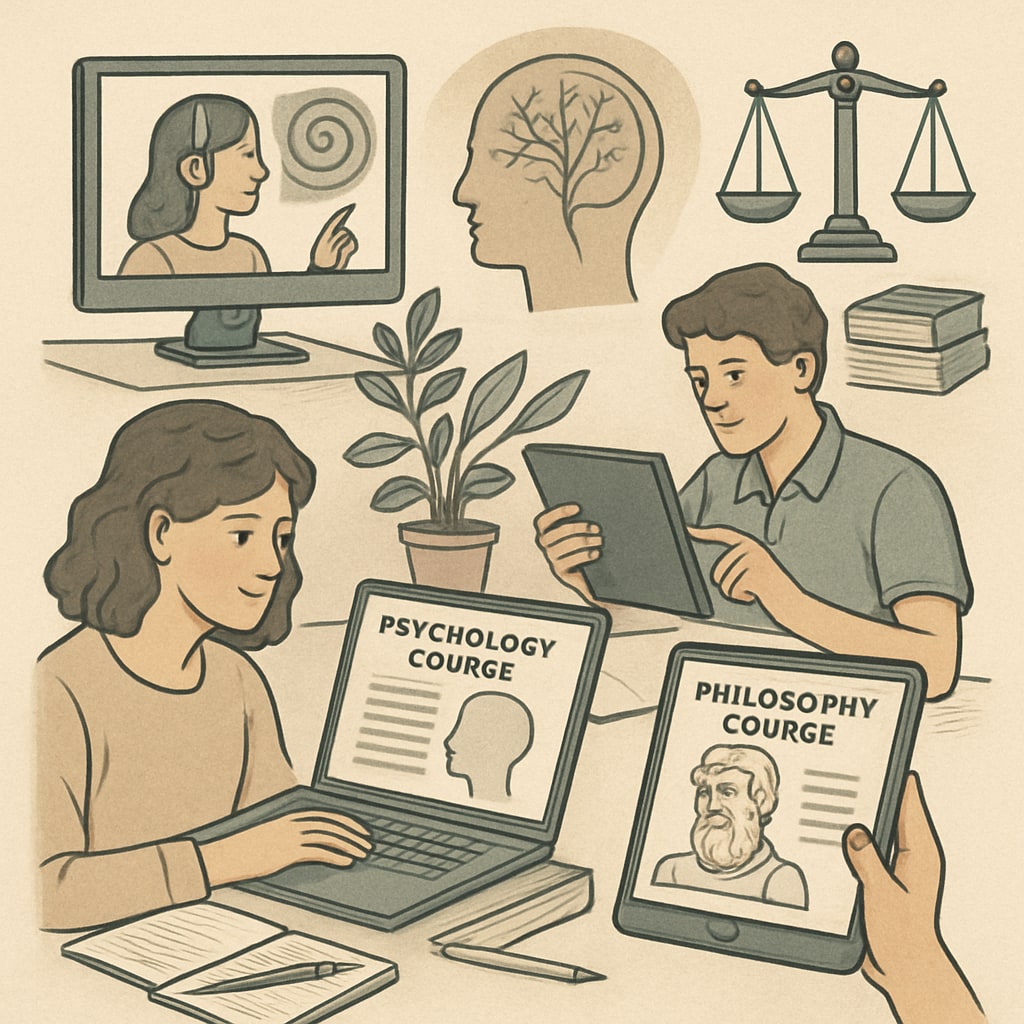Introducing K12 students to psychology, philosophy, and self-learning resources can profoundly influence their critical thinking and self-awareness. These disciplines not only explore human behavior and thought but also encourage deep questioning and logical reasoning. In this article, we’ll examine how educators and parents can guide students through these intriguing fields, providing age-appropriate tools and strategies.

Why Start Psychology and Philosophy in K12 Education?
Psychology and philosophy are more than academic subjects; they provide frameworks for understanding oneself and the world. During the K12 years, students are at a prime age to begin exploring questions about human behavior, ethics, and reasoning. For example, psychology helps students understand emotions, learning processes, and interpersonal relationships, while philosophy fosters curiosity about life’s fundamental questions, such as “What is truth?” or “What is justice?”
Starting early allows children to build critical thinking and problem-solving skills that can benefit them in all areas of life. However, the challenge lies in selecting resources that suit their developmental stage and interests.
Age-Appropriate Resources for Learning Psychology and Philosophy
One size does not fit all when introducing these subjects to students. Below are recommended resources tailored to different age groups:
- Elementary School: For younger students, books like “What is Psychology?” by Ellen Green or simplified philosophy texts, such as “Big Questions for Little People” by Gemma Elwin Harris, can spark curiosity.
- Middle School: At this stage, students can dive deeper into concepts with “The Psychology Book” by DK and “Sophie’s World” by Jostein Gaarder, which introduces philosophical ideas in a storytelling format.
- High School: Older students can engage with more advanced works, such as “Thinking, Fast and Slow” by Daniel Kahneman for psychology and “Meditations” by Marcus Aurelius for philosophy.
In addition, online platforms like Coursera and Khan Academy offer free introductory courses in these subjects, making them accessible for self-paced learning.

Teaching Strategies for Psychology and Philosophy
Effective teaching strategies can make these complex subjects approachable for K12 students. Here are some proven methods:
- Discussion-Based Learning: Encourage open-ended discussions around ethical dilemmas or psychological scenarios. This helps students develop reasoning skills and express their thoughts.
- Interactive Activities: Use role-playing to simulate psychological concepts like empathy or philosophical debates on morality. Interactive learning is both engaging and memorable.
- Incorporating Technology: Utilize apps like “Psychology Today” for psychology insights or “Philosophy Bytes” podcasts for bite-sized philosophy lessons.
These approaches ensure the material remains relevant and captivating, catering to different learning styles and preferences.
Benefits of Introducing Psychology and Philosophy Early
Guiding students to explore psychology and philosophy during their K12 years has numerous advantages:
- Critical Thinking Skills: Students learn to analyze situations, question assumptions, and reason logically.
- Self-Awareness: Psychology helps students understand their emotions and motivations, while philosophy encourages introspection.
- Empathy and Ethical Awareness: Both subjects promote understanding of others’ perspectives and ethical decision-making.
As a result, students become better equipped to navigate personal and professional challenges in the future.
Conclusion
Psychology, philosophy, and self-learning resources offer K12 students an opportunity to explore human thought and behavior while developing essential life skills. By tailoring age-appropriate materials and employing engaging teaching strategies, educators and parents can ensure these subjects resonate with young learners. Start the journey today and inspire a lifelong love of learning in these fascinating fields.
For further exploration, check out resources like Psychology on Wikipedia or Philosophy on Britannica.


